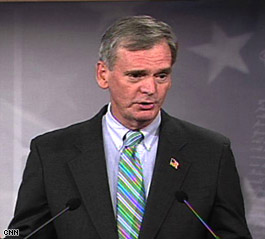The war between the intangible and tangible sectors of the U.S. economy is over—and intangibles have won. Since the economy went into recession a year ago, the industries producing or distributing physical or tangible goods—including construction, manufacturing, retail trade, and transportation—have lost an astounding 1.8 million jobs. That includes a decline of 260,000 jobs in the much-beleaguered auto industry and its dealer network, and a drop of 300,000 in residential construction employment.
Meanwhile, the intangible sector, which includes such industries as education and health care, has received far less attention than autos and housing. But since the recession start date of December 2007, the intangible-producing industries have gained about 500,000 jobs.
In fact, today's troubles in autos and housing are indications of a long-term shift: The U.S. economy, in part because of globalization but also because of the nature of knowledge-based growth, has been moving toward producing outputs that have long-lasting effects but don't have a solid and visible forms. One such intangible produced by the education system is human capital, which is another phrase for the long-term value of education. Another important intangible is intellectual capital, which is the accumulation of scientific knowledge, business and financial knowhow, and artistic accomplishments. Finally, the U.S. is spending heavily on building up health capital. That's the dollar value of a person's lifetime health, according to David Cutler, a Harvard University economist and a key adviser to President-elect Barack Obama.
These intangibles—critical for today's knowledge-based economy—are not well measured by the gross domestic product figures produced by the Bureau of Economic Analysis. However, intangibles do produce jobs. Consider the last business cycle, which ran from March 2001 to December 2007. Over that stretch, health and education alone added 3.5 million jobs, roughly 63% of all the net jobs produced by the economy. Altogether, the intangible sector accounted for about 75% of job growth. By comparison, the tangible sector, led by manufacturing, lost some 1.8 million jobs over the same period.
A Fine Line?
Of course, this division between the tangible and intangible sectors is a bit messy in practice. Some manufacturing companies, such as Intel (INTC) and IBM (IBM), are big producers of intangibles in the form of research and technological knowledge. Oil companies, which are dedicated to the tangible act of drilling for crude, also invest heavily in the intangible knowledge of where to find the oil. At the same time, the intangible sector is not immune to the downturn. Publishing is losing jobs, as newspapers, magazines, and book companies wrestle with the shift to digital formats. And finance is experiencing big job losses, which will only accelerate in the coming months. Education and health-care spending, meanwhile, is tied to state and local budgets, which are likely to crater without help from the federal government.
But at least so far, the intangible sector, notably health care, has remained remarkably buoyant. In September 2006, I predicted that 30% to 40% of all new jobs created over the next quarter-century would be in health care. That long-term forecast turned out to be an understatement in the short run. Since that story was published, health care has added roughly 800,000 jobs, while employment has declined sharply in the rest of the economy.
For Obama and his incoming Administration, the question is whether the shift to intangible production is a sustainable economic strategy over the long run. Better education, improved health, and more research are clearly necessary to be globally competitive. But it's not clear yet whether a country such as the U.S. can afford to let all its tangible industries shift abroad. That's why Washington is grappling with the knotty problem of spending billions to save the domestic automakers. But Americans who want jobs have no such dilemma. For them, intangible is the way to go.
Mandel is chief economist for BusinessWeek.
'Business' 카테고리의 다른 글
| Inteligent Design (0) | 2008.12.11 |
|---|---|
| Chrysler's Hidden Coffers (0) | 2008.12.11 |
| How To Survive A Workaholic Spouse (0) | 2008.12.10 |
| Meta Data: Online Killed Black Friday Sales (0) | 2008.12.10 |
| Loss Widens Into New York Close (0) | 2008.12.10 |



 √
√



